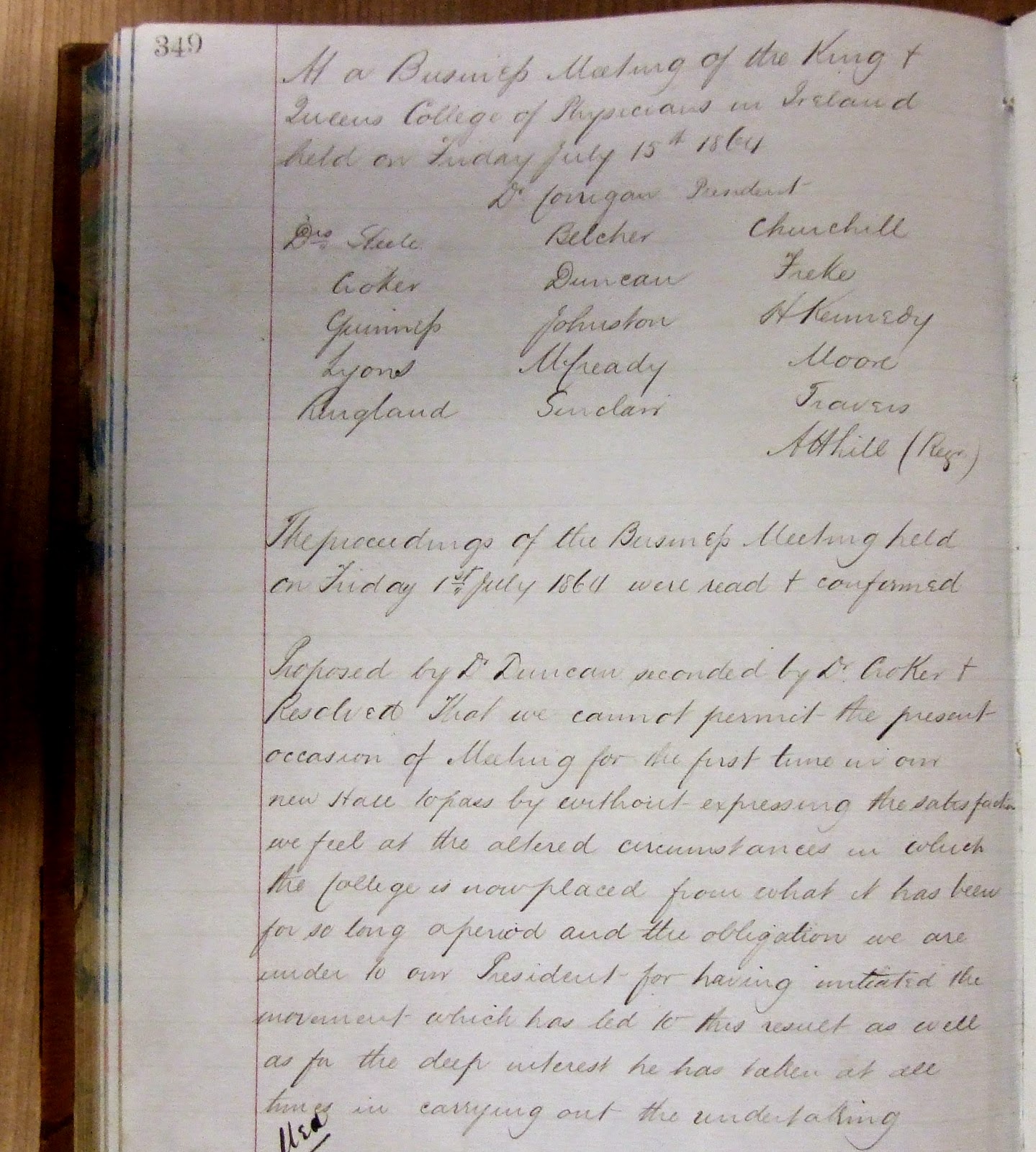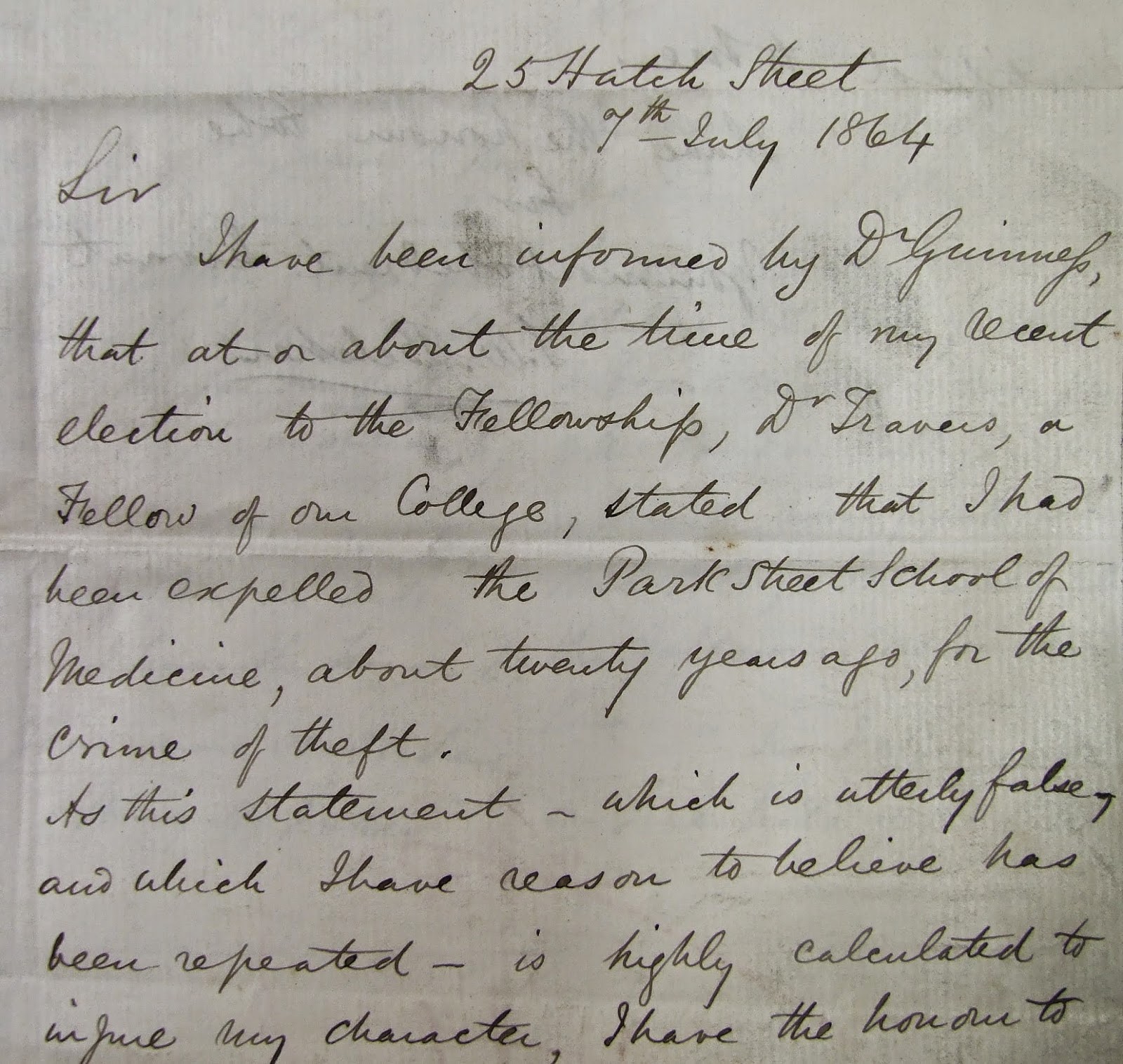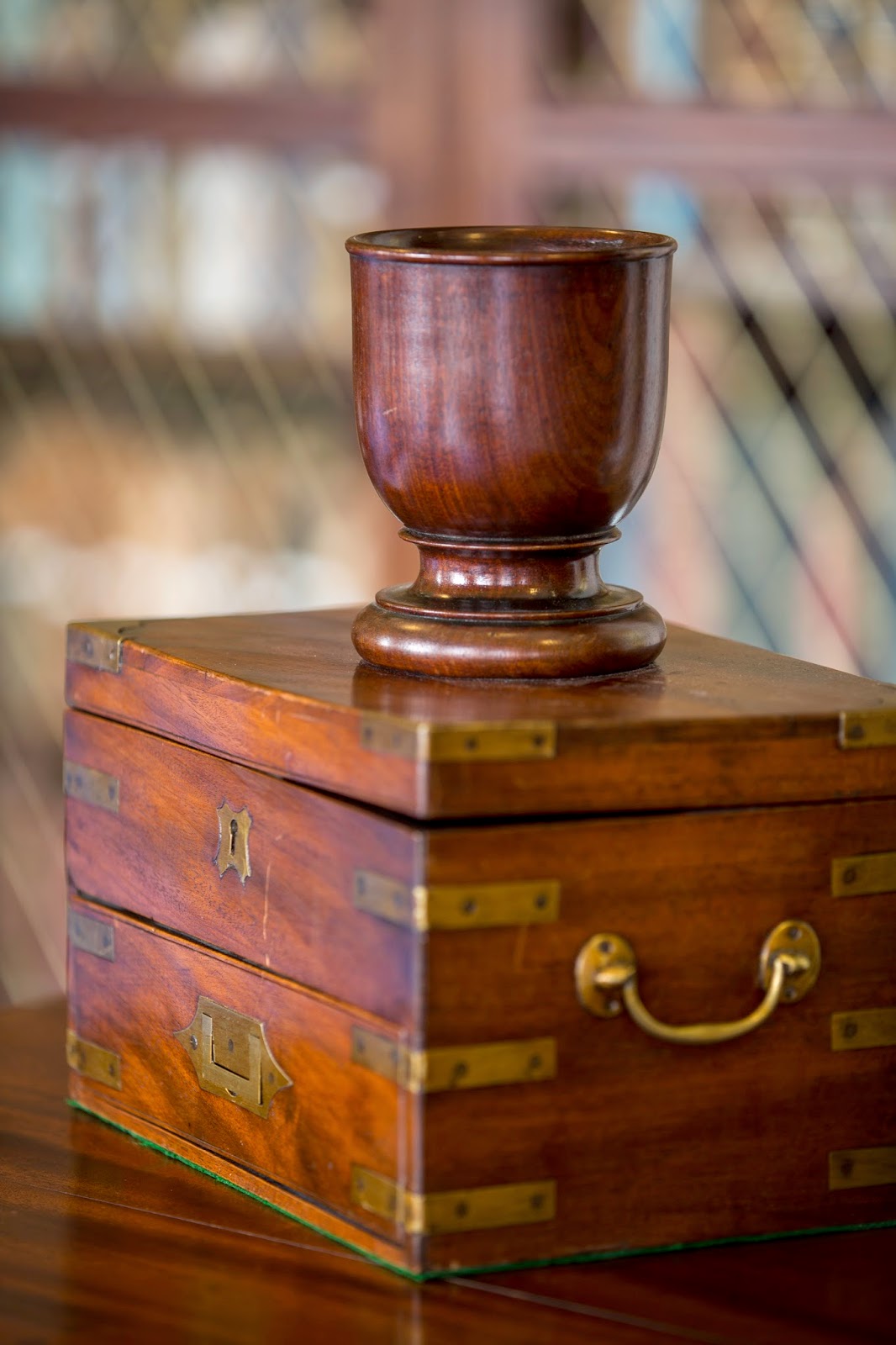A new home for the College - 150 years on Kildare Street
150 years ago on the 15th July 1864 RCPI held
their first College meeting in their newly built home on Kildare Street. The minutes of the meeting record that the
College
‘cannot permit the present occasion of a Meeting for the first time in
our new Hall to pass without expressing the satisfaction we feel at the altered
circumstances in which the College is now placed from what is has been for so
long a period’
A home for the College
certainly had been a long time coming, and until 1864 the College had led a
somewhat nomadic existence.
Following its foundation
in 1654 College meetings were initially held in Trinity Hall, loaned to the
physicians by Trinity College, but this arrangement came to an end in 1680.
From that point the meetings were held in the house of the College President
until the death of Sir Patrick Dun in 1713. Dun stipulated that the College
were to have the use of his former library to hold their meetings, but
disagreements between the College and his widow scotched this arrangement
within a few years of his death.
For much of the
eighteenth century College meetings were peripatetic, being held in private
homes, rooms in Trinity College or Dublin Hospital. However, in 1815 when Sir
Patrick Dun’s Hospital opened on Grand Canal Street the College had a meeting
room in the hospital, where it would remain for 49 years, until the final move
to Kildare Street.
This will be the first
in a series of blog posts looking at the design and construction of 6 Kildare
Street, and we will be holding a number of events to mark the 150th
anniversary of the opening of 6 Kildare Street;
- Tours of
the building will be held daily from Monday 25th August to Thursday
28th August as part of national Heritage Week. Book your place on a tour here.
- This
year’s Heritage Centre Lectures, on Tuesday 15th October, will look
at the interactions between architecture and medicine in both the Victorian Age
and today.
- We will
be holding a special RCPI Design and Ideas Competition for architecture
students, asking them to reimaging a building for RCPI today based on the
design brief given in 1860.
 |
Minutes of the first RCPI meeting in 6 Kildare Street on 15 July 1864
(RCPI/2/1/1/14) |
But getting back to
the first College meeting held in Kildare Street 150 years ago, what else was
on the agenda aside from general congratulations on the new building? Well, it
seems that there was trouble brewing between some of the College Fellows. Drs
Travers, Guinness and Belcher were asked to leave the meeting while a matter
concerning them was discussed.
The minutes of the
meeting refer to two letters that had been received by the College on the
subject and these provide more details of just what had been going on. In a letter dated 7th
July 1864 Dr Belcher refuted the charge made against him by Dr Travers that ‘I [Dr Belcher] had been expelled the
Park Street School of Medicine, about twenty years ago, for the crime of theft’.
Belcher states this statement ‘is utterly
false’ and as it ‘is highly
calculated to injure my character, I have the honour to request that you will
cause it to be investigated by the College’.
 |
| Letter from Dr Belcher to RCPI, 7 July 1864 |
 |
| RCPI's ballot box |
In a letter received
by the College the following day from Dr Guinness another, possibly related,
complaint was laid against Dr Travers that he had 'publicly stated that “there was a fraud perpetrated” at the
ballot held for Dr Belcher’. Dr Guinness was in charge of the ballot box on
that day and felt ‘that my character had
been attacked by Dr Travers in making this assertion’, as a result Dr
Guinness offered to appear before the College to acquit himself of the charge.
At the meeting on 15th July the
cases referred to the College by both Dr Guinness and Dr Belcher were
discussed, and the three men involved were eventually recalled to the meeting
to be informed that
The conduct of Dr Travers calls for the
strong reprobation of this College for his having been the means of circulating
an unfounded charge injurious to a gentleman now a Fellow of the College, and
for applying the term ‘fraud’ to the result of the Ballot.